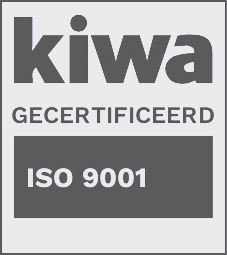In today’s globalised business landscape, the demand for accurate translations is growing, especially for companies aiming to communicate effectively across multiple markets. AI-powered translation tools like DeepL, ChatGPT, and Google Translate offer a quick and cost-effective solution. However, while these tools are powerful, they have their limitations.
Relying solely on AI or on raw machine translations can lead to significant pitfalls. This blog post dives deeper into the potential dangers of using machine translation software without human revision and highlights why the human touch is still invaluable.
The limitations of machine translation software
Machine translation tools, especially those driven by advanced neural machine translation algorithms, have made remarkable progress. They use huge amounts of data and smart computer systems to create translations that are pretty fluent and seem accurate at first glance. However, fluency doesn't mean accuracy and they still have some important weaknesses:
- Context and Nuance: Machine translation tools often struggle with the subtleties of language, such as idiomatic expressions, humor, and industry-specific jargon. This can lead to translations that don’t feel right or may even come across as culturally insensitive.
- Tone and Style: Different industries need different tones and ways of speaking. While AI or machine translation tools can replicate some tones, they often miss the small details that a human translator would catch. This can result in translations that don't connect well with your audience or align with your brand's style.
- Ambiguity: Machine translation engines can sometimes produce unclear or incorrect translations, especially without enough context, even if they read well at first glance. This can lead to mistakes and create confusion, especially in important business documents.
Privacy concerns with machine translations
Privacy is a significant concern when using machine translation tools. Many free platforms and tools require users to upload documents or text, which can raise concerns about data security, especially when handling sensitive or confidential information. Without strict privacy measures or secure encryption, there is a risk of data breaches or unauthorized access.
However, partnering with a professional language service provider or using paid machine translation solutions provides stronger protection for your sensitive information. These solutions typically follow strict confidentiality protocols and use secure systems to process your data, ensuring maximum privacy. By opting for a professional or paid solution, you can be confident that your information is safeguarded at every step. Just make sure to verify that they follow the right security protocols to keep your information safe.

The importance of human revision
While machine translation tools are helpful, they cannot fully replace human expertise. Here is why having a human check on the translations (known as post-editing) is important:
- Context Sensitivity: Only humans can fully understand the meaning of a text, making sure that the message is clear and correct.
- Cultural Sensitivity: Human translators understand different cultures and make sure your content is appropriate, avoiding mistakes that could harm your brand, especially in marketing or legal documents.
- Quality Assurance: A human translator can spot errors that AI might miss, ensuring high-quality and accurate translations.
- Legal and Ethical Compliance: In areas like healthcare, law, or finance, human translators ensure that translations comply with industry regulations and ethical standards.
Machine vs. Human: Choosing the right translation service
Machine translation tools are of great help for speed and efficiency. However, they may not be ideal for every translation project. To ensure your content is accurate, culturally appropriate, and matches your brand’s style, it is crucial to involve human translators. By combining AI’s speed with human expertise, you can create translations that truly resonate with your audience.
Curious to find out whether your translation project is suitable for machine translation and post-editing? Download our free guide to learn more! This guide is designed to help you choose the translation service that best fits your needs.
As a language partner, we always provide personalised, free-of-charge advice to ensure the solution matches your project's unique requirements. Feel free to contact us, and we will guide you in choosing the right translation solution for your needs!


.png)
.svg)
.png)
.svg)

%20(2).jpg)
.jpg)










.png)


.png)
